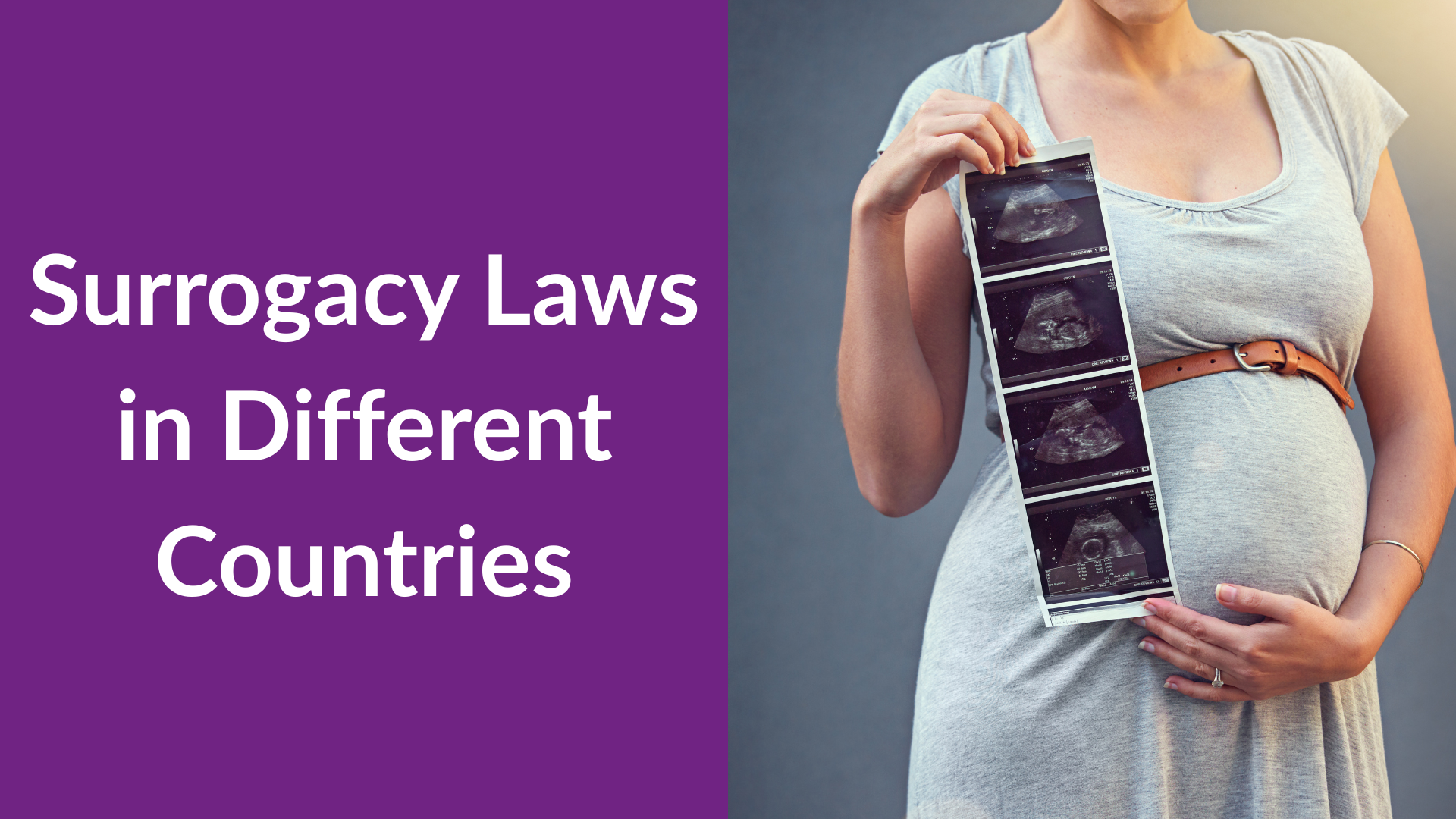Surrogacy is a beacon of hope for individuals and couples unable to conceive naturally. But as the demand grows, so does the legal complexity. Globally, surrogacy laws differ dramatically, ranging from full legality to outright bans, with diverse regulations across continents. Understanding these laws is crucial for anyone considering international surrogacy.
In this 2025 guide, we break down the surrogacy laws across key countries, provide expert insights, and offer a deep dive into India’s surrogacy legislation.
Surrogacy Laws in Different Countries: A Country-by-Country Overview
| Country | Legal Status | Key Notes |
| India | ✅ Altruistic only (for Indian citizens) | Strict eligibility; foreign commercial surrogacy banned |
| USA | ✅ Varies by state | Many states allow commercial surrogacy (e.g., California, New York) |
| Canada | ✅ Altruistic only | Legal for all family types; no commercial compensation |
| Georgia | ✅ Commercial allowed | Open to heterosexual foreign couples |
| Ukraine | ✅ Commercial allowed | Favorable for married heterosexual couples; currently active despite war |
| Russia | ✅ Commercial allowed | Open to foreign and single parents |
| Iran | ✅ Religious backing for surrogacy | Allowed under Shia Islamic law |
| Thailand | ❌ Banned for foreigners | Legal only for married Thai heterosexual couples |
| Australia | ✅ Altruistic only | Commercial surrogacy banned; laws vary by state |
| Kenya | ⚠️ Unregulated but practiced | Commercial surrogacy accepted through contracts |
| Mexico | ✅ Legal in some states | Sinaloa and Tabasco have surrogacy-friendly laws |
| Greece | ✅ Altruistic only | Legal for heterosexual couples and single women |
| Colombia | ⚠️ Loosely regulated | Growing surrogacy hub; legal gray areas remain |
| China | ❌ Prohibited | Underground surrogacy still exists |
| Japan | ⚠️ Unregulated and discouraged | Not legally protected |
| Germany/France | ❌ Prohibited | All forms of surrogacy are banned |
| South Africa | ✅ Altruistic surrogacy only | Allowed only for residents with court approval |
| Vietnam | ✅ Altruistic, family only | Restricted to relatives; legal under marriage law |
Types of Surrogacy Recognized Globally


- Commercial Surrogacy – The surrogate should be financially compensated beyond medical expenses.
- Altruistic Surrogacy – The surrogate receives no payment beyond reimbursed costs.
- Traditional Surrogacy – The surrogate is genetically related to the baby (rare and often discouraged).
- Gestational Surrogacy – The surrogate has no genetic connection to the child (most legally accepted).
Surrogacy Laws in India (2025): What You Must Know
India was once a global hub for commercial surrogacy, however, its legal landscape has shifted significantly with the implementation of the Surrogacy (Regulation) Act, 2021.
What is Allowed in India?
- Only altruistic surrogacy is permitted.
- Intended parents must be:
- Married Indian heterosexual couples, married for at least 5 years.
- The woman must be aged 23–50, and the man 26–55.
- Medically proven infertility is mandatory.
- Widowed or divorced Indian women (aged 35–45) can also seek surrogacy.
- Foreign nationals, NRIs, and single men are not eligible.
- The surrogate must be:
- An Indian woman, married with a child of her own.
- Between 25–35 years of age.
- A close relative of the intended couple (as per unclear government definition).
- Not compensated, except for medical costs and insurance.
What is Banned?
- Commercial surrogacy
- Surrogacy for foreigners
- Surrogacy for LGBTQ+ couples and single men
- Use of a surrogate more than once
Legal Process in India
- Intended parents must obtain a certificate of eligibility.
- Surrogates require a certificate of medical and psychological fitness.
- A court-registered agreement is mandatory and the birth certificate is issued with the names of the intended parents.
⚠️ While the law seeks to prevent exploitation, it has also significantly narrowed access, making India viable only for eligible Indian couples.
Where is Surrogacy Most Accessible Today?


Georgia
- Legal for married heterosexual couples (including foreigners).
- Both altruistic and commercial surrogacy allowed.
- Transparent laws, quick birth registration, no legal parenthood disputes.
Ukraine
- Top choice for affordability and legal clarity.
- War has affected access but many clinics remain operational.
- Intended parents’ names are on the birth certificate from day one.
USA
- Best for legal protection and modern fertility practices.
- Commercial surrogacy legal in surrogacy-friendly states like California, New York, and Nevada.
- High cost but extremely secure.
Canada
- Altruistic surrogacy only.
- Inclusive to all family structures.
- Requires legal contracts and post-birth parentage orders.
Kenya
- Unregulated, but practiced openly under contract law.
- Allows surrogacy for all profiles, including LGBTQ+ and single parents.
- Lower costs but fewer legal protections.
Global Surrogacy Map: Highlights
- Europe: Most Western European countries ban all forms of surrogacy (France, Germany, Italy).
- Asia: India, Iran, and Georgia offer legal options with varying restrictions.
- Americas: USA, Canada, Colombia, and Argentina are growing destinations.
- Africa: Kenya and South Africa are emerging hubs.
- Oceania: Australia and New Zealand permit only altruistic surrogacy.
Legal Factors to Consider When Choosing a Country
- Is the surrogate compensated legally?
- Are international intended parents allowed?
- Do laws support parental rights from birth?
- Are post-birth legal processes required?
- Is the surrogacy agreement enforceable in court?
Surrogacy Tourism: Growing but Risky


Due to uneven regulations, many turn to cross-border surrogacy. However, this comes with risks:
- Travel restrictions or emergencies (e.g., war in Ukraine)
- Unrecognized birth certificates
- Citizenship complications
- Post-birth custody or adoption hurdles
Always consult legal professionals in both home and destination countries.
Conclusion: Choose Legally, Ethically, and Informed
Surrogacy remains a powerful option for family building—but only when done within a transparent and legal framework. Countries like India (for eligible locals), Georgia, Ukraine, USA, and Canada offer clear laws that support the rights of both the surrogate and intended parents.
When choosing a country, consider:
- Your citizenship
- Your family profile
- The legal rights you’ll have as parents
- The ethical practices in place




